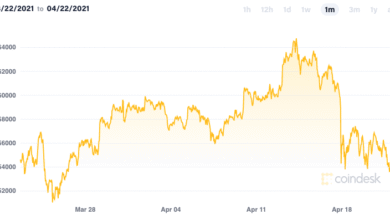Executive Stock Sell-offs: Circle and Zillow Insights

Executive stock sell-offs have become a focal point in the financial world, particularly with recent activity from key players like Circle Internet Group and Zillow. As leading executives unload their shares, market observers are keen to interpret these sales, often viewing them as indicators of possible underlying issues within the company. Stock market trends indicate that such insider trading activities can cause ripples of speculation among investors, heightening their focus on other corporate executive sales. For instance, the substantial transactions from top executives at Circle and Zillow have attracted attention as analysts scrutinize the implications on share prices and market confidence. Insight into these executive decisions may shape our understanding of the future landscape for companies that are traditionally perceived as stable investments.
The phenomenon of corporate insiders divesting their holdings raises questions about their companies’ health and future prospects. Not only are these stock sales often scrutinized for signs of potential trouble, but they also reflect a broader narrative about investor sentiment and corporate strategy. As we explore the recent trends surrounding maneuvers by executives, such as those from Circle Internet Group and Zillow, it’s crucial to understand the subtleties of insider sales. These actions are not merely reactions to market conditions but can signify strategic shifts or even caution in the face of evolving business landscapes. Hence, analyzing these patterns becomes essential for stakeholders seeking to navigate the complexities of modern financial markets.
Understanding Executive Stock Sell-Offs and Their Implications
Executive stock sell-offs represent a pivotal indicator of a company’s internal dynamics and can often prelude significant shifts in stock market trends. When high-ranking officials, such as the CEOs of Circle Internet Group or Zillow Group, liquidate substantial portions of their holdings, it generally garners attention from analysts and investors who want to decipher the underlying motives. For instance, Jeremy Allaire’s recent sale of 358,000 shares, coinciding with Circle’s secondary offering, was closely monitored given its impact on stock valuation, leading to a decline of over 20% since the announcement.[1] Often, such decisions can signal not only personal financial strategy but also potential red flags regarding a company’s performance or future outlook. Investors quickly react to these sell-offs, sometimes interpreting them as a lack of confidence from the leaders of the company.
Similarly, in the case of Zillow Group, Richard Barton’s decision to sell 350,000 shares outside of typical trading plans raises questions about the company’s direction. Although Zillow’s stock saw a 25% increase that quarter, the shift in executive shareholding patterns could suggest a recalibration of long-term strategies—something that investors should heed carefully. Understanding these patterns not only sheds light on individual companies like Circle and Zillow but also provides insight into broader market behaviors which can be influenced by insider trading activities. As we move further into 2025, these trends will likely shape investor sentiment and stock analysts’ forecasts.
Impact of Insider Trading on Stock Market Trends
Insider trading encompasses not just sell-offs but also the acquisition of stocks by those with privileged information, which can distinctly influence stock market trends. In a high-stakes environment where companies like Applovin and Cardinal Health are adjusting their stock positions, the market’s reaction can be swift and unforgiving. When insiders engage in selling, as evidenced by the recent actions of executives at major corporations, it brings to the forefront the delicate balance of trust that investors place in corporate governance. For instance, Jason Hollar’s drastic 31.3% reduction of his holdings at Cardinal Health prompts analysts to dissect the potential implications of such moves and their correlation with the company’s recent stock performance.
The phenomenon of insider trading affects not just the individual stocks in question, but can also create ripples throughout the market, affecting investor sentiment broadly. As the stock market adapts to new information, including insider sell-offs and acquisitions, we observe fluctuations that reflect traders’ reactions. These fluctuations can be substantial, particularly when prominent corporations like Zillow Group report unexpected executive sell-offs. The case in point is the uptick in Zillow’s stock, even amidst significant share sales from its executives. Such a contrast demonstrates that while insider trading is viewed with skepticism, the underlying health of the company can temper the negative effects of these sell-offs.
Key Takeaways from Recent Executive Sales in 2025
Analyzing the recent wave of executive sales provides critical insights for investors looking to navigate the intricacies of the stock market in 2025. The sell-offs from companies like Circle Internet Group and Zillow reflect both strategic personal financial decisions by the executives and broader market sentiments regarding each company’s future. For instance, the heavy sell volume in Circle’s stock, as a response to their secondary offering and subsequent decline in share price, showcases how such corporate strategies can shape the landscape of stock value. This draws attention to the asset management strategies of corporate executives in response to market pressures, highlighting the importance of being adaptive and informed.
Moreover, the stark contrast in stock performance among different companies, despite similar executive selling patterns, illustrates that market dynamics can often defy conventional expectations. While Zillow saw a rise in share prices amidst executive sales, which suggests market confidence in their trajectory, other firms like Cardinal Health and Circle found themselves ensnared in declines despite positive year-to-date metrics. These discrepancies stress the significance of continuous assessment of each company’s fundamentals, alongside weighing the implications of insider trading, as they could either reinforce or undermine market positions. Investors thus need to stay informed, utilizing tools like stock analysis techniques and academic insights regarding insider transactions to better navigate the tumultuous waters of the stock market.
Circle Internet Group: The Latest Developments
Circle Internet Group’s recent activities serve as a focal point for understanding trends in the tech and finance sectors especially as it heads into 2025. The notable sell-off by CEO Jeremy Allaire not only raised eyebrows among analysts but also sparked substantial discussion among investors and traders regarding the company’s strategic direction. The sale of 358,000 shares, combined with the context of a secondary offering, has weighed on stock performance, illustrating how executive decisions can synchronize with broader market sentiments and price movements.
Furthermore, Circle’s stock has experienced a tumultuous decline of 57% from its peak earlier in the summer. This dramatic downturn coincided with a sharp influx of shares following its IPO, adding layers of complexity for investors assessing future potential. The market’s reaction to these developments emphasizes the importance of scrutinizing both executive decisions and broader market conditions when forming strategic investment decisions.
Zillow Group: Navigating the Insights from Executive Sell-Offs
In contrast to the sell-off narrative that surrounded Circle, Zillow Group’s recent executive sales have unfolded against a backdrop of increasing stock value, prompting intrigue and speculation. Key executives, including Co-executive Chairman Richard Barton, liquidated portions of their holdings while the company itself saw nearly a 25% rise in share prices over the quarter. This juxtaposition signifies the complexities within insider trading—the action of executives selling shares can be interpreted variably depending on the concurrent performance of stock prices, which further complicates investor perceptions.
Thus, Zillow’s stock analysis reveals that while executive sell-offs might initially appear concerning, in certain contexts, they can also align with positive underlying business fundamentals. As Zillow continues to navigate through a changing market landscape and capitalize on growth opportunities, shareholders must remain vigilant—managing the balance between recognizing potential insider signals and understanding the overarching market trends that drive stock performance. This delicate interplay is key for those looking to forecast future movements within the stock.
Corporate Executive Sales: A Broader Perspective
Corporate executive sales play a pivotal role in how investors perceive the stability and health of a company. While individual sales can arise from personal financial planning or tax strategies, they can also shift market sentiments instantaneously. Major sell-offs, like those witnessed with executives at Robinhood and Monolithic Power Systems, encourage a thorough examination of the corporate landscape. Each sale carries implications that can sway investor confidence and subsequently impact stock market trends.
Moreover, insightful analysis of corporate executive sales reveals trends in specific sectors. As we analyze the context behind these sales, it becomes evident that market conditions, regulatory changes, and economic outlooks influence executive decisions. In 2025, understanding the dynamics of these sales offers investors not just an understanding of the companies involved but also a lens into broader market behaviors and expectations.
Insider Trading Trends of 2025: What Investors Should Know
The landscape of insider trading in 2025 presents a unique blend of opportunity and caution for investors. With complex regulations and an evolving market, the frequency and impact of insider selling are becoming focal points for thorough analysis. For instance, the insider transactions reported from various companies, such as Applovin and Informatica, may seem disjointed on the surface, but collectively they sketch a nuanced picture of corporate health, investor confidence, and market anticipation.
Investor awareness of these trends is paramount. As trading patterns evolve, being informed about corporate actions via executive sell-offs can enhance strategic decisions. It is crucial for market participants to remain up-to-date with insider trading developments and understand how these transactions connect to broader conditions influencing stock performance. Thus, keeping a finger on the pulse of these trends can enable a more proactive investment strategy in the face of ongoing market fluctuations.
Market Sentiment: The Reaction to Insider Sales
Market sentiment often demonstrates a volatile reaction to insider sales, as investors look to gauge the implications of these decisions on future company performance. The immediate aftermath of significant sell-offs, such as the recent transactions by Cardinal Health’s executive team, often prompts analysts to scrutinize the company’s fundamentals and market position. For instance, following Hollar’s decision to sell over 140,000 shares, the market’s reaction was one of unease, manifesting a decrease in stock performance despite its year-to-date gains.
On the other hand, scenarios like Zillow’s positive response to insider sales indicate that market sentiment can vary widely. The company’s stock ascent despite notable sell-offs reflects a resilient business model that reassures investors, suggesting that robust operational health can outweigh concerns sparked by insider actions. This duality exemplifies how essential it is for investors to not only observe executive sales but to interpret them within the broader context of market trends and company performance metrics.
The Role of Regulatory Framework in Insider Trading
Regulatory frameworks governing insider trading are pivotal in ensuring fair practices within the stock market, aiming to create transparency and trust among investors. As companies like Zillow and Circle Internet Group navigate the complexities of regulatory compliance, the recurring theme of executive sell-offs sheds light on the intricacies of navigating these guidelines. Ensuring adherence to established rules not only preserves corporate integrity but also protects investors by minimizing the risks associated with potential misrepresentations in the market.
Furthermore, an understanding of how these regulations shape insider trading behaviors can help investors strategize more effectively. As the regulatory landscape evolves in 2025, insights into compliance trends can provide valuable perspectives on how companies might respond to market pressures and how they manage insider transactions. Active engagement with these developments primes investors to discern patterns that could have significant implications for their portfolio strategies, enhancing their capacity to adapt to a dynamic trading environment.
Frequently Asked Questions
What are executive stock sell-offs and why do they matter?
Executive stock sell-offs refer to situations where company executives or insiders sell their shares in the company. These transactions are critical to monitor because they may indicate potential concerns within the company, influence stock market trends, and affect investor confidence, as seen with companies like Circle Internet Group and Zillow during significant sell-offs.
How are unscheduled executive stock sell-offs viewed in the market?
Unscheduled executive stock sell-offs, like those by Circle Internet Group and Zillow executives, can raise red flags for investors. They may suggest shifts in company outlook or market conditions that require careful analysis, particularly when such sales are outside of a structured 10b5-1 trading plan.
What impact do executive stock sell-offs have on stock prices?
Executive stock sell-offs typically exert downward pressure on stock prices, as observed with Circle Internet Group, which experienced a decline of over 20% following its CEO’s sale. Market perception can shift quickly, affecting investor sentiment and leading to broader implications for stock market trends.
What is the significance of the 10b5-1 trading plan concerning executive stock sell-offs?
The 10b5-1 trading plan allows executives to pre-schedule stock trades, thus providing a legal framework for selling shares without insider trading implications. Non-planned executive stock sell-offs, as seen with Zillow’s executives, can be particularly concerning to investors, as they may indicate an immediate need to liquidate shares.
How does insider trading relate to executive stock sell-offs?
Insider trading often overlaps with executive stock sell-offs when executives sell their shares based on non-public information. In contrast, legitimate executive stock sell-offs made under 10b5-1 plans are legally sanctioned, but unplanned sell-offs may lead to speculation about insider trading, particularly in contexts like those observed with Circle Internet Group.
What can investors learn from recent executive stock sell-offs like those at Zillow?
Investors can gain insights into a company’s health by examining patterns of executive stock sell-offs. For instance, increases in stock prices amidst sell-offs, as with Zillow Group, may suggest strong market confidence despite insider selling. However, significant sell-offs can also signal caution, warranting thorough analysis of corporate performance.
Are executive stock sell-offs common across industries?
Yes, executive stock sell-offs occur across various industries, reflecting individual company circumstances. Recent sell-offs from companies like Circle Internet Group and Zillow highlight how executive decisions can impact broader stock market trends and investor strategies.
How should investors react to executive stock sell-offs in companies like Circle Internet Group?
Investors should approach executive stock sell-offs with caution, analyzing the context and motivations behind the sales. Monitoring metrics related to the company’s financial health and stock performance and staying updated on SEC filings can provide clarity on whether these actions warrant a re-evaluation of their investment strategy.
| Company | Executive | Shares Sold | Average Price | Total Value | Holdings Reduced (%) | Recent Stock Performance |
|---|---|---|---|---|---|---|
| Circle Internet Group | Jeremy Allaire | 358,000 | $127.08 | $45.5 million | 2% | -20% since Aug 12, -57% from peak in June |
| Zillow Group | Richard Barton | 350,000 | $85.25 | $29.8 million | 6% | +25% this quarter |
| Zillow Group | Lloyd Frink | 250,000 | $85.00 | $21.3 million | – | +25% this quarter |
| Applovin | Arash Adam Foroughi | 178,000 | $418.78 | $74.3 million | 2% | +29% since the beginning of quarter |
| Monolithic Power Systems | Michael Hsing | 20,000 | $829.10 | $16.8 million | 2% | – |
| Cardinal Health | Jason Hollar | 143,000 | $149.19 | $21.4 million | 31.3% | -4% over 3 months, +24% year-to-date |
| Willdan Group | Thomas Brisbin | 125,000 | $109.58 | $13.7 million | 28% | +126% over the past three months |
| Informatica | Amit Walia | 508,000 | $24.71 | $12.6 million | 20% | +10% over three months |
| Robinhood | Jason Warnick | 100,000 | $110.93 | $11.1 million | 16% | +72% over the last 3 months |
Summary
Executive stock sell-offs have become a focal point for investors and market analysts, particularly as these actions can indicate potential issues within the companies involved. Recently, major executive sell-offs at firms like Circle and Zillow have captured attention due to their significant implications for stock performance and investor sentiment. In light of these transactions, investors should closely monitor insider selling as a key indicator of market trends and company health.



